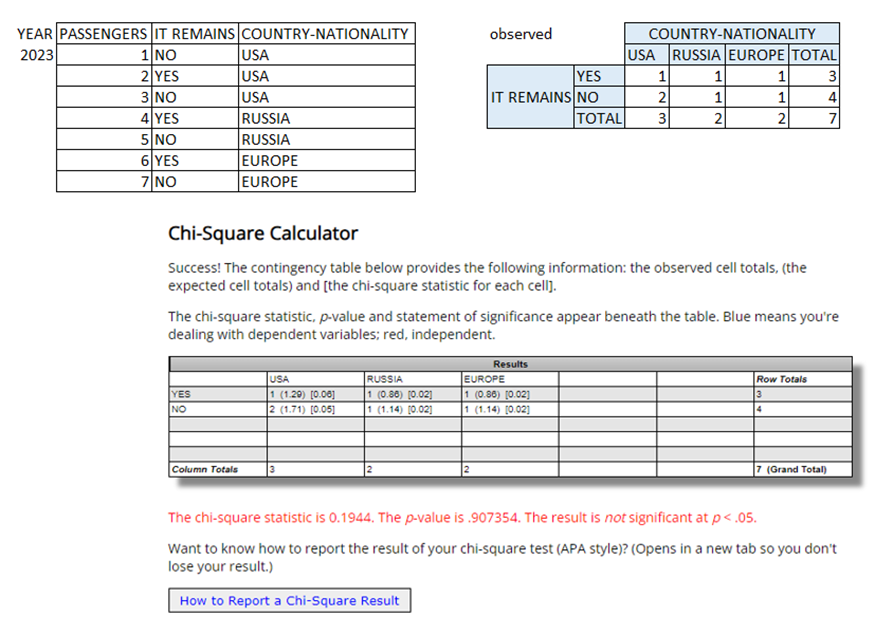
Will resolve 'YES' if there is at least one person occupying a space station built and put into orbit by a private company or group of private companies at the end of 2030.
According to current research, it has been observed that the number of people sent to space in a year is limited, not exceeding 7 individuals. This restriction is due to a combination of factors, including the safety of space missions and space traffic congestion. These factors have led to a rigorous and comprehensive control in the selection and monitoring of astronauts in orbit, with the aim of safeguarding their health and ensuring the success of space missions.
Within this context, data collection has been conducted, documenting how many individuals were sent to space during the current year, specifying their nationality, and determining whether they have returned to Earth safely. From this data, an intriguing question arises: Is there any relationship between the nationality of astronauts and the probability of their successful return to Earth?
To address this question, a statistical analysis was carried out employing the chi-squared test. The results of this analysis revealed that the chi-squared statistic obtained was 0.1944, and the associated p-value for this test yielded a result of 0.907354. It is important to note that in statistics, a p-value below 0.05 is generally considered significant. Since in this case, the p-value is considerably greater than 0.05, we cannot assert that there is a significant relationship between the nationality of astronauts and the likelihood of a successful return from a space mission.
These results indicate that, up to this point, no statistical evidence has been found to support the hypothesis that the nationality of astronauts influences their ability to return successfully to Earth after a space mission. Nevertheless, it is crucial to continue collecting data and exploring other potential variables that may affect astronauts' return to further understand this fascinating research area.
